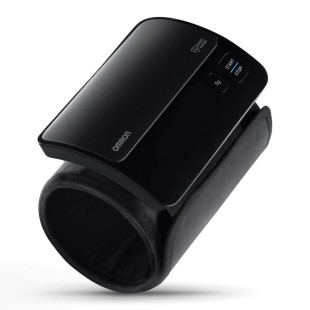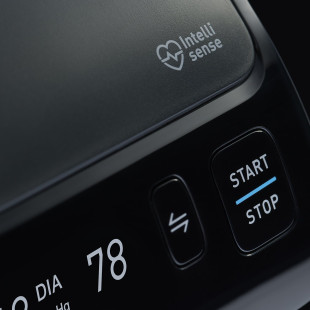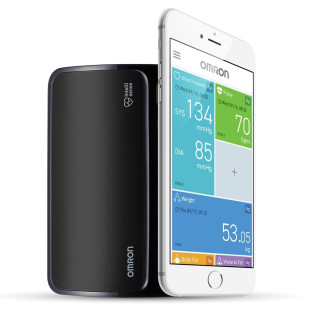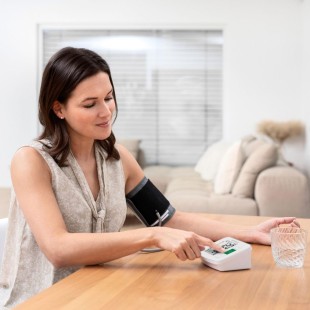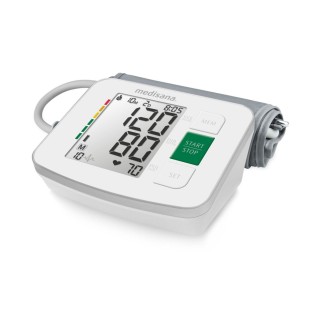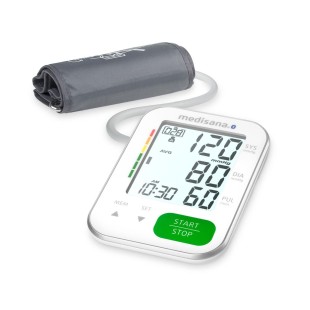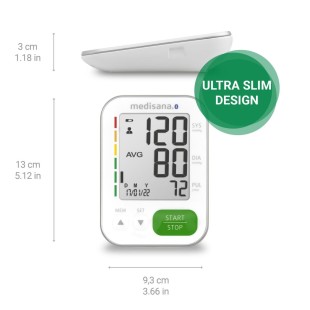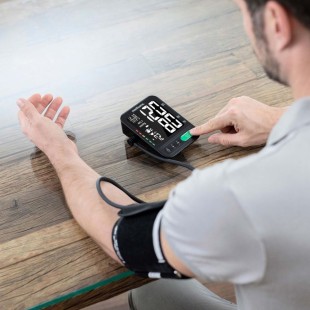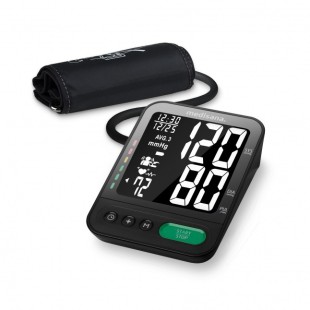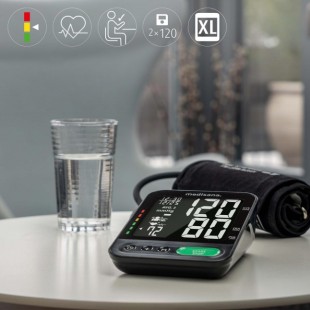Product description
- Rossmax X9 blood pressure monitor
- Professional blood pressure monitor
- Both automatic and mechanical measurement are available
- Pulse Arrhythmia Detection (PARR)*
- Detection of atrial fibrillation (AFib)*
- Premature Contraction Detection (PC)*
- Tachycardia (TACH) indicator
- Bradycardia (BRAD) indicator
- Proper cuff fitting* technology;
- Motion detection* technology;
- Determination of hypertension risk
- 90 memories with date and time
- Three sizes of cuffs in a set (S 16-26cm, M 24-36cm, L 34-46cm)
- Large LCD screen 99x115 mm
- Illuminated screen
- Cuff holder
- Runs on batteries or mains power
- 5 year warranty
- Approved by the European Society of Hypertension (ESH) and the British Hypertension Society (BHS)
PARR TECHNOLOGY
Avoid the risk of cardiovascular disease and stroke by early detection of atrial fibrillation, early contraction, tachycardia and bradycardia. Heart problems require medical attention, so early diagnosis is of prime importance. PARR technology detects arrhythmias during regular blood pressure checks without additional user skill, user intervention and measurement duration.
PARR - UNIQUE PULSE ARRHYTHMIA TECHNOLOGY
Early detection of heart attack risk, at the touch of a button.
Why choose?
- Identifying atrial fibrillation (AFib)
- The world's leading technology for detecting premature ventricular contractions (PC).Premature contractions/tachycardia/bradycardia
- The fastest technology. 42 seconds
- The most convenient way of measuring. At the touch of a button
- High accuracy. 74-100%
- Proven technology. Suitable for >95% of patients
DETERMINATION OF Atrial fibrillation (AFIB)
The upper chambers of the heart (the atria) work irregularly (fibrillation) and usually push blood into the ventricles quickly instead of efficiently. This condition is associated with a higher risk of heart clots, stroke, heart failure, and other heart complications. About 10% - 20% of patients who suffer from an ischemic stroke also suffer from atrial fibrillation. This is a technology that detects irregular or more frequent atrial fibrillation. Such a condition means an increased risk of blood vessel blockage, heart attack or other heart diseases.
DETECTION OF PREMATURE CONTRACTION (PC)
This is an extra, non-standard heartbeat generated in unusual areas of the heart, either in the atria (PAC) or ventricles (PVC). This extra beat disrupts the heart's normal rhythm, sometimes causing palpitations (jumpy beats) in the chest. Sometimes repetitive. If not related to stress, such palpitations are a symptom of many heart ailments and also increase the risk of ischemic stroke. It is a technology that allows the detection of extra, irregular heartbeats in various parts of the heart, usually the atria or ventricles. These extra heartbeats throw the heart rhythm out of balance and sometimes lead to palpitations.
SETTING THE MOVEMENT
The motion detector reminds the user not to move and detects any body movement during the measurement. The indicated symbol appears as soon as body movement is detected and after each measurement.
SETTING THE CUFF
Checks and reports whether the cuff is correctly placed on the goose.
ATTENTION! The meter X9 is intended for professional use, so the cuff does not come with a ring. When using this type of cuff in person, it can be difficult to put on your arm! Please inform at the time of ordering if a cuff with a ring is required in the set! Change after order, may cost extra!
*If you want the cuff to be changed: in the order window, in the "Note" field, please indicate the size of the cuff (S, M or L) that you want to change to a cuff with a ring - S 16-26 cm, L 34-46 cm or U 24 -40 cm.
Optional extras:
Metrological inspection certificate


